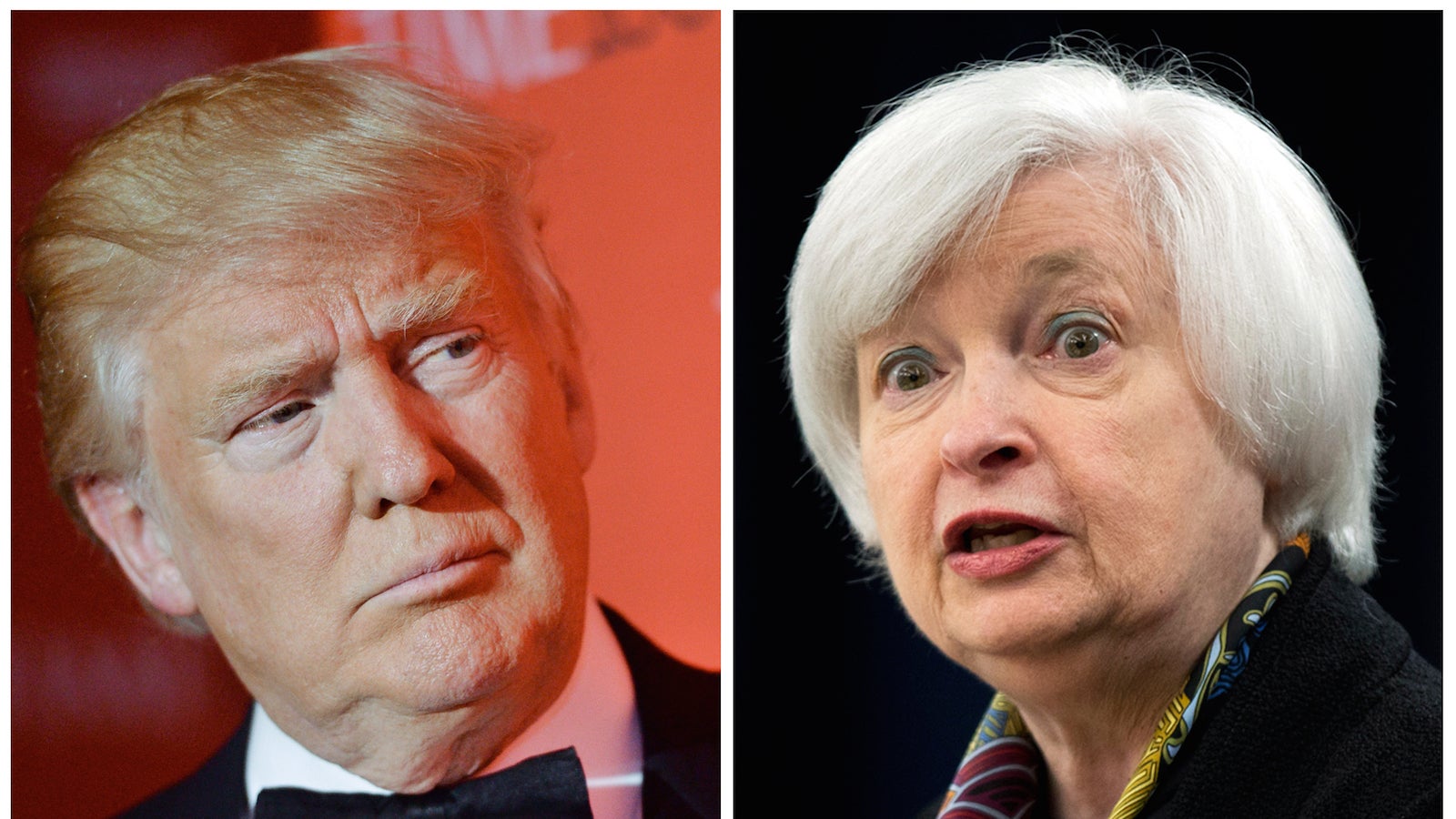Political meddling with the Fed won’t make it magically fix unemployment
Politics and monetary policy are a toxic combination. Good monetary policy balances short-term and long-term goals, and requires humility about what aspects of the economy can be controlled. Politicians, meanwhile, are notoriously egotistical and tend to be terrible at long-term thinking, preferring instead to focus on the immediate issues that impact their chances at reelection. For these reasons, the independence of the Federal Reserve–and its leadership of well-trained technocrats–are crucial to its ability to act in the best interests of the US economy.


Politics and monetary policy are a toxic combination. Good monetary policy balances short-term and long-term goals, and requires humility about what aspects of the economy can be controlled. Politicians, meanwhile, are notoriously egotistical and tend to be terrible at long-term thinking, preferring instead to focus on the immediate issues that impact their chances at reelection. For these reasons, the independence of the Federal Reserve–and its leadership of well-trained technocrats–are crucial to its ability to act in the best interests of the US economy.
Yet politicians on both sides of the aisle appear determined to shake things up. A group of 127 Democratic congressmen, led by Senator Elizabeth Warren and Representative John Conyers Jr. of Michigan, penned a May 12 letter to Fed chair Janet Yellen advocating for more diverse leadership at the central bank. They argue that the Fed needs more women, minorities, and people from diverse occupations and class backgrounds because its predominantly white, male leadership is not sufficiently concerned about disproportionate unemployment among minorities.
Presidential candidates are also calling for changes at the Fed. Democratic presidential candidates Bernie Sanders and Hillary Clinton want to prevent bankers from serving on the boards of the Fed’s 12 regional banks and to include more labor union leaders and farmers in its leadership. Presumptive Republican nominee Donald Trump, meanwhile, has suggested he would remove Janet Yellen if elected and spoken favorably of the ”audit the Fed” movement in Congress.
I’m sympathetic to the need for diversity in the Fed. If qualified women and minorities aren’t in Fed leadership roles because of discrimination, that needs to be fixed. We need the best people in charge. But I’m concerned about politicians’ apparent misunderstanding of the way central banking works. Putting more minorities or labor leaders in high-profile jobs at the Fed will not magically give the Fed the power, or tools, to solve issues outside its mandate.
There are two main types of unemployment. Cyclical unemployment is caused by a weak economy, which makes firms hesitant to hire new workers. In this case, the Fed can lower interest rates to boost economic activity and demand, thereby getting more people back to work.
Structural unemployment, however, occurs when there is a mismatch between the skills of the people who need jobs and the kinds of jobs that are available or when people can’t move to where the jobs are. In these cases, the Fed can’t do much to fix it.
The trick is knowing which kind of unemployment is which. If the Fed mistakes structural unemployment for cyclical unemployment, its policies eventually stop working–that is, no matter how low interest rates go, companies don’t start hiring more workers. At this point, low interest rates pose more costs than benefits. And the Fed also loses credibility that it can influence unemployment and financial markets, which undermines its power in the future.
Right now, unemployment is higher among minorities, and that is a real problem. But it stems from the fact that minorities tend to have lower levels of education, live in locations with fewer jobs, and face employer discrimination. None of these things can be fixed by anything in the Fed’s tool kit, which includes blunt instruments like setting interest rates. If any part of the government can address those problems, it is Congress, not the Fed. If legislators are truly interested in fixing minority unemployment, they should be looking in the mirror instead of pointing their fingers at Yellen.
As an economist, I may be biased–but I also worry about putting people without strong backgrounds in economics and finance in charge at the Fed. Determining monetary policy is mostly a technical job, for which academic economists and bankers tend to be the most qualified. There certainly are worrying conflicts raised by the prospect of putting former bankers in top positions. But to a large extent it is a necessary evil. Banking expertise is critical to understanding how monetary policy feeds through the financial sector. I’d even argue that the Fed needs more intellectual diversity, meaning that we need more financial economists and fewer macro economists.
Most worrisome, however, is the prospect of politicians wielding their power over the Fed by auditing it and mandating its leadership, thereby undermining the Fed’s independence. In order for its policies to work, the Fed needs credibility that it will make tough but necessary choices. But politicians seem bent on misunderstanding the Fed’s mission–and what it is capable of achieving.